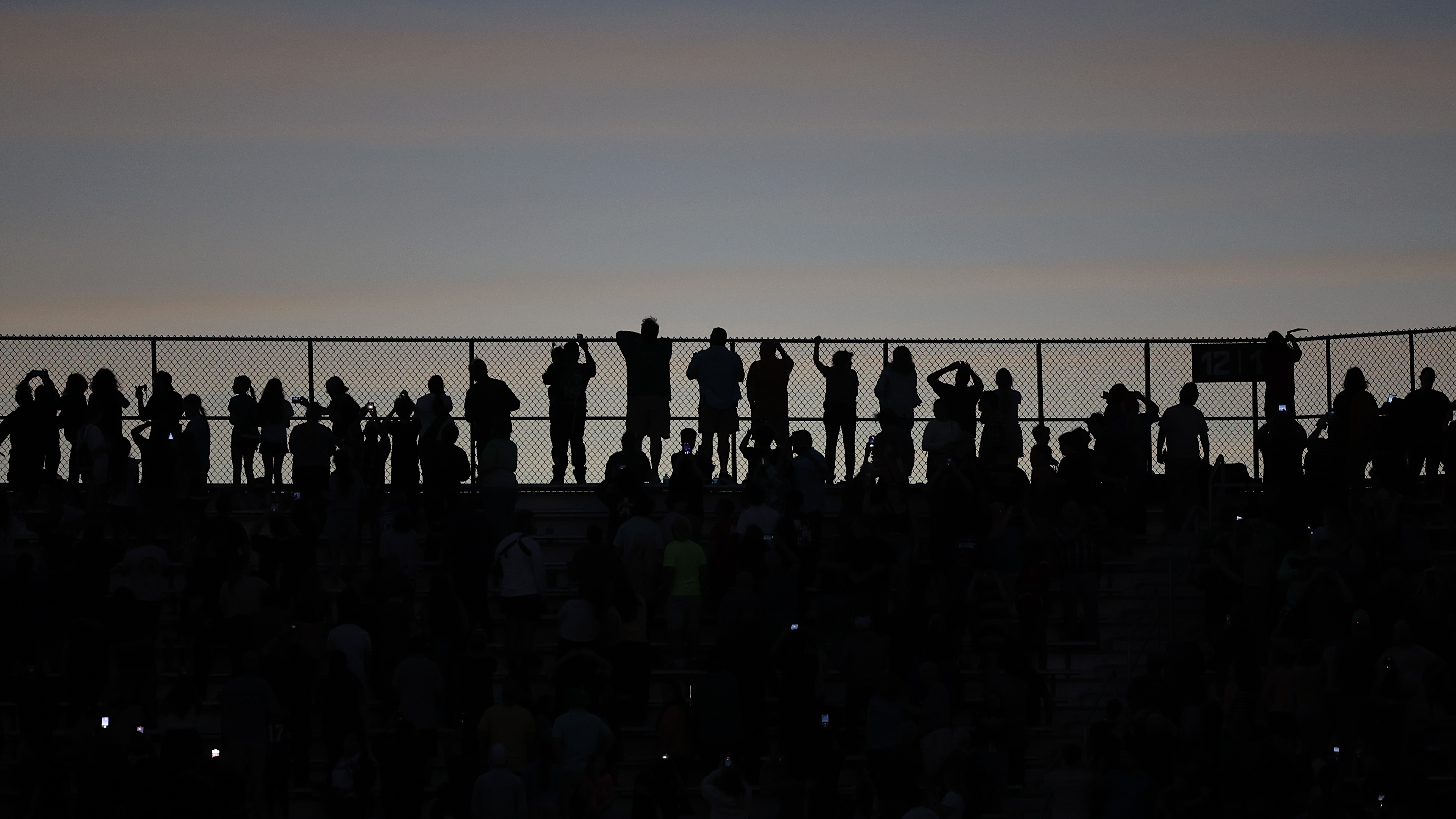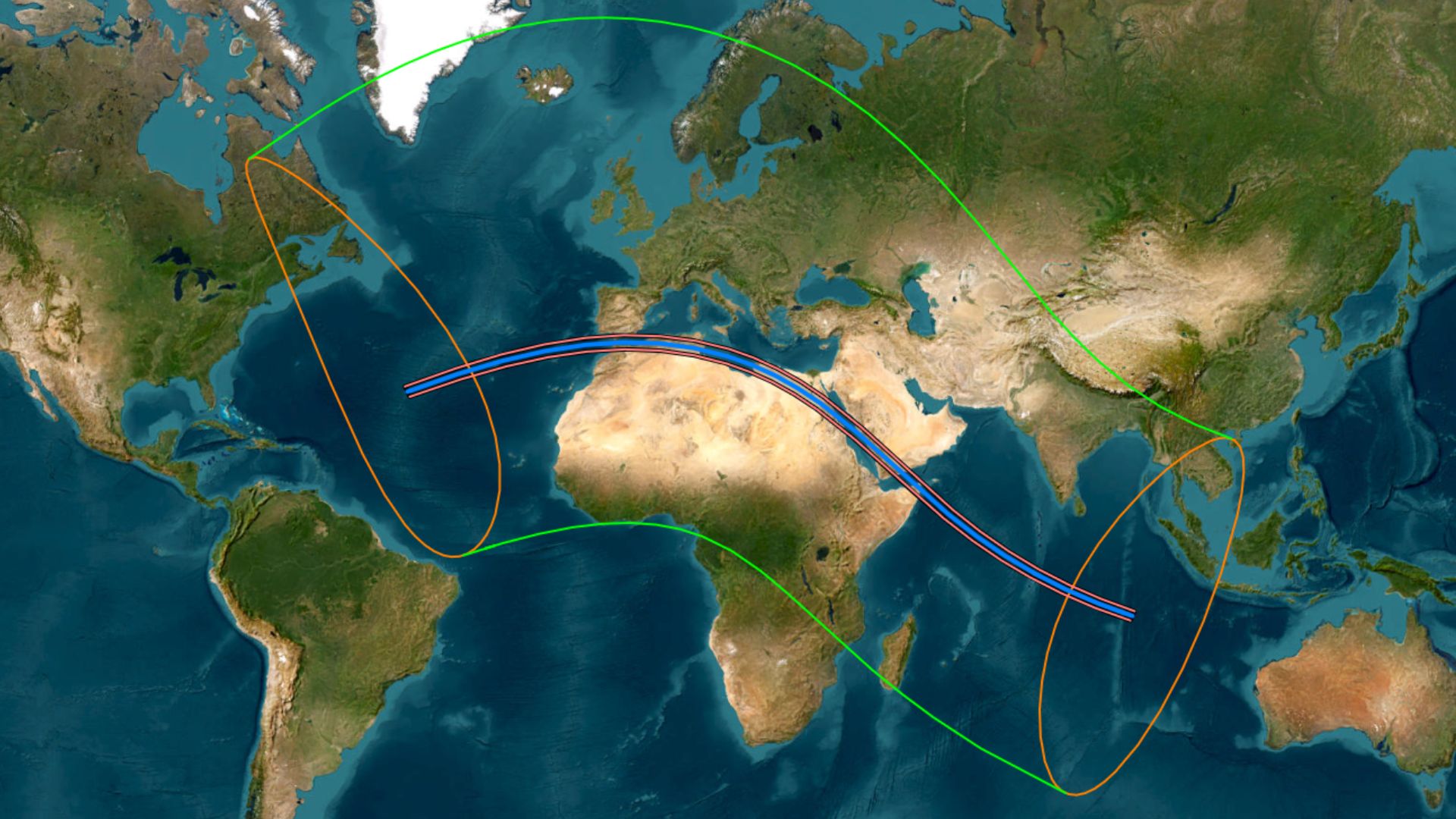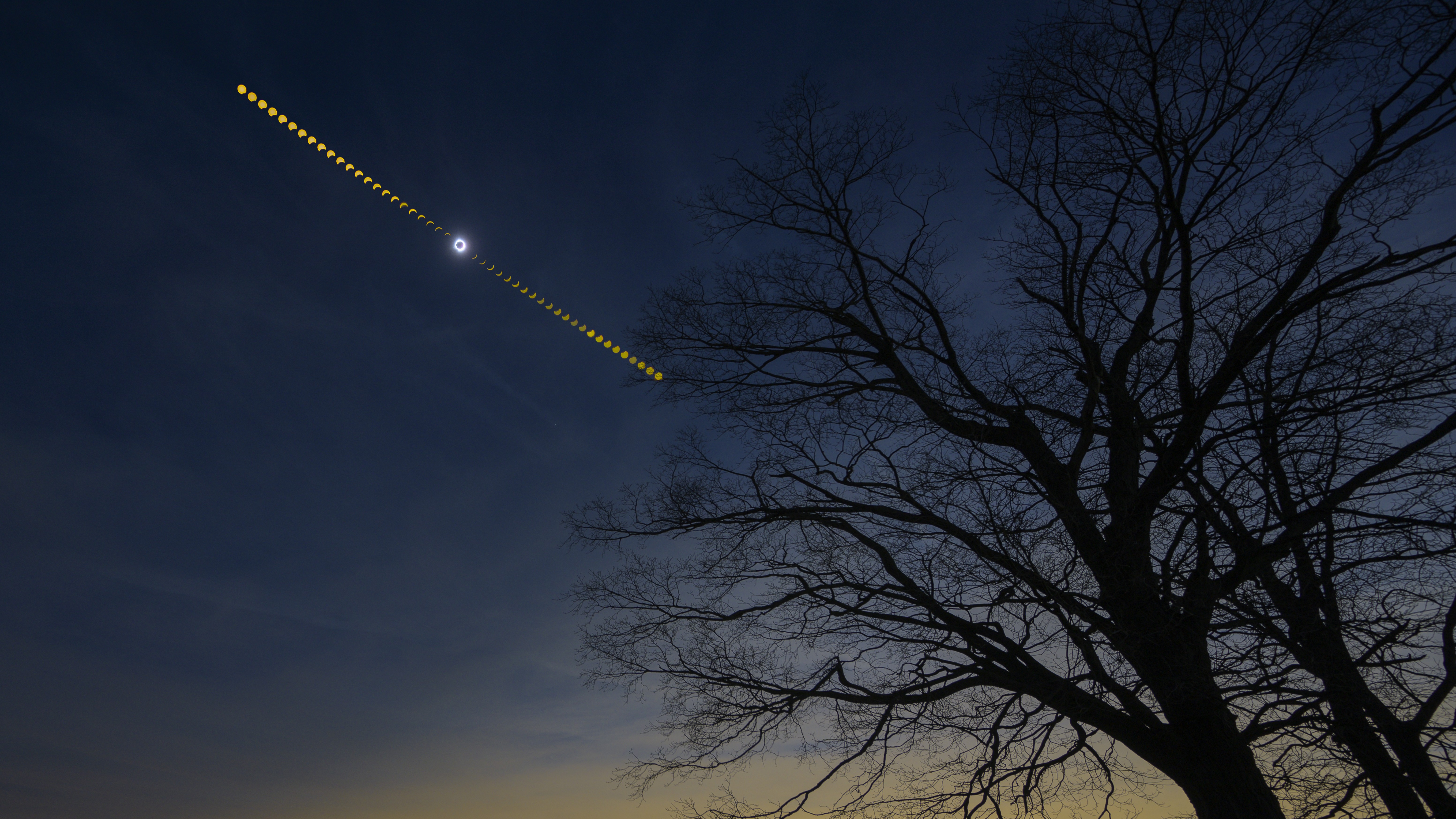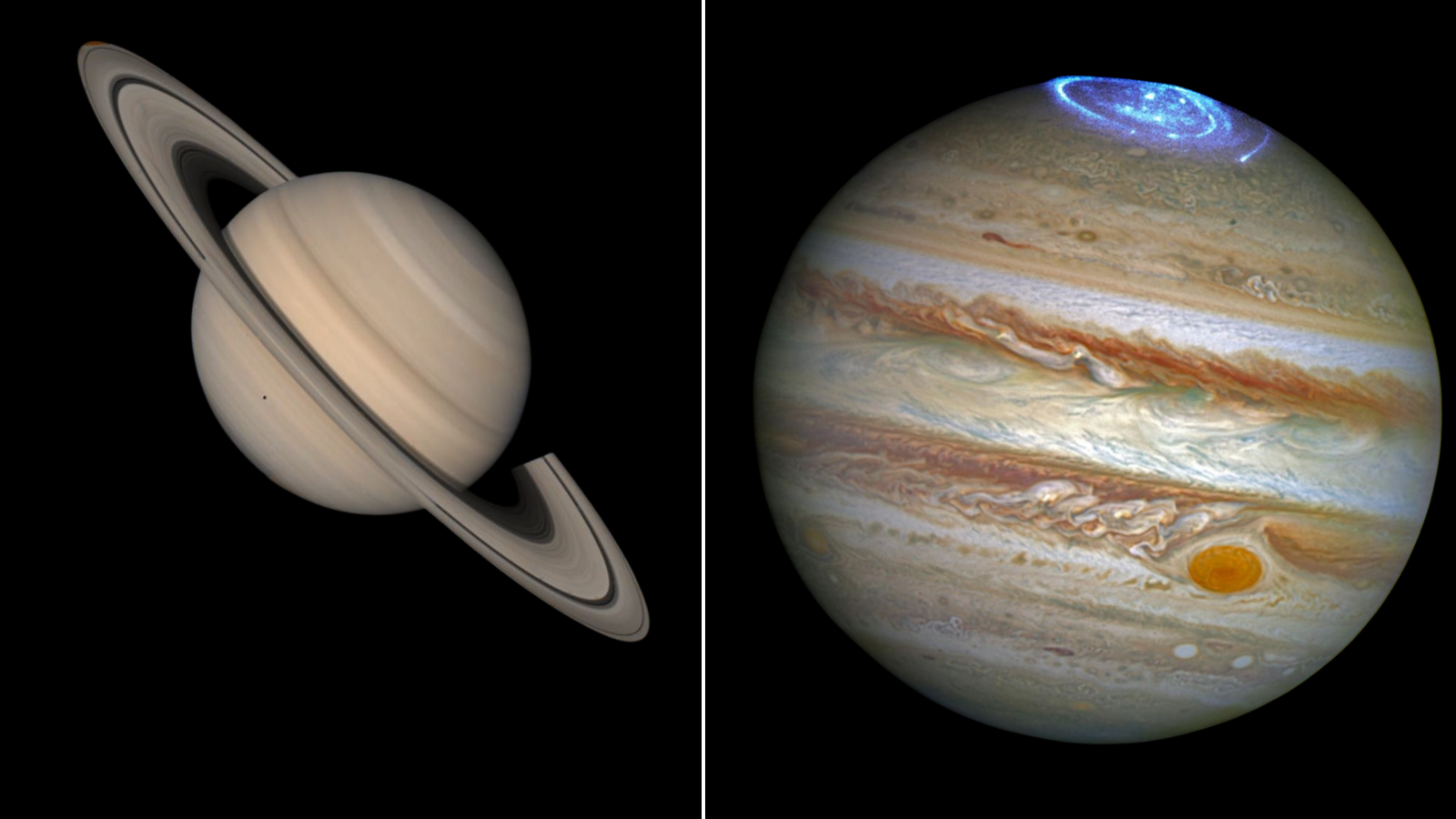No, the whole world won't go dark on Aug. 2 — but a once-in-a-century eclipse is coming
A viral claim says the world will go dark on Aug. 2. It won't — but a record-breaking solar eclipse is coming in 2027.

A viral claim making the rounds online and on social media claims "the world to go dark for six minutes" on Aug. 2, intimating that it won't happen again for 100 years. It won't. How could it? There will be no global blackout. However, something special connected with darkness will happen on Aug. 2 in a couple of years.
What's likely fueling the confusion is a genuinely spectacular event coming up on Aug. 2, 2027, which we've been rightly calling the "eclipse of the century." On that day, the moon will completely block the sun for up to 6 minutes and 22 seconds, delivering the longest period of totality on land in the 21st century
For comparison, the April 8, 2024, total solar eclipse across Mexico, the U.S. and Canada offered a maximum totality of 4 minutes and 28 seconds — already considered unusually long.
It may seem like hyperbole, but the total solar eclipse on Aug. 2, 2027, is being dubbed the "eclipse of the century" for good reason. It will bring the longest totality on land of the entire 21st century (since 1991, in fact) and will be the longest remaining totality until July. 16, 2114. So while the "won't happen again for 100 years" assertion is false, 2027's totality is the longest for 87 years.
The path of totality in 2027 — where it will "go dark" (though it's actually more like a 360-degree twilight) — is wider than usual, because the moon will be at its closest, but it's still narrow on a global scale. On Aug. 2, 2027, the path will be about 160 miles (258 kilometers) wide and surge across 9,462 miles (15,227 km) of Earth's surface. That's about 1.5 million square miles (2.5 million square km) — a lot, but a tiny fraction of Earth's 197 million square miles (510 million square kilometers).
The path of totality will cross parts of 11 countries, mostly across North Africa and the Middle East. The total solar eclipse will be visible in Spain, Gibraltar, Morocco, Algeria, Tunisia, Libya, Egypt, Sudan, Saudi Arabia, Yemen and Somalia. A partial eclipse will be visible across most of Africa, Europe and southern Asia. For the rest of the world — including North America — it will be business as usual.
To witness a total solar eclipse is a rare and awe-inspiring experience if you're in the right spot — and have clear skies. Within the path on Aug. 2, 2027, are some spectacular places to experience totality, from Tarifa at the southern tip of Spain to the beaches of Tunisia and Luxor, the temple-strewn capital of ancient Egypt.
Breaking space news, the latest updates on rocket launches, skywatching events and more!
That's all happening in August 2027, not this August. It's not possible for the entire Earth to simultaneously go dark. Besides, there is no solar eclipse of any type in August. The next one is a partial solar eclipse on Sept. 21, when up to 80% of the sun will be eclipsed by the moon as seen from the Pacific Ocean (including Fiji, Tahiti and New Zealand) and Antarctica.
The world will not go dark this August, but if the century's longest total solar eclipse appeals, circle Aug. 2, 2027, on your calendar and book a trip right now.

Jamie is an experienced science and travel journalist, stargazer and eclipse chaser who writes about exploring the night sky, solar and lunar eclipses, the Northern Lights, moon-gazing, astro-travel, astronomy and space exploration. He is the editor of WhenIsTheNextEclipse.com, author of A Stargazing Program For Beginners, co-author of The Eclipse Effect, and a senior contributor at Forbes.
You must confirm your public display name before commenting
Please logout and then login again, you will then be prompted to enter your display name.


